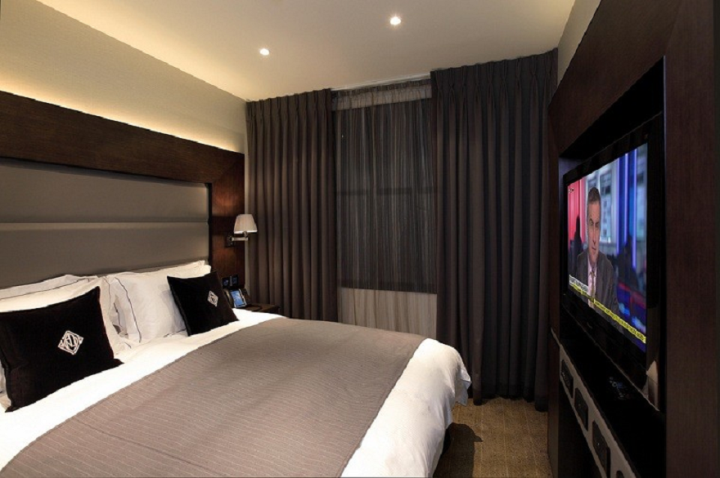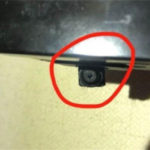Many people often overlook checking hotel rooms after checking in, especially areas such as the TV, bedside lamps, corners, etc. However, these are ideal positions for criminals to install hidden cameras.
Why is it necessary to unplug the TV when checking into a hotel room?
The TV is usually placed in a central location in the hotel room and can provide a wide viewing angle. This allows criminals to effectively gather information about the activities and privacy of guests.
In addition, the methods of operation of criminals are becoming more sophisticated and covert. The cameras they use are getting smaller and wireless communication technology is highly advanced nowadays, allowing criminals to easily transmit images or videos from the TV camera to another location without the need for clear cables or connections. This makes hiding cameras easier and harder to detect.
Therefore, to protect oneself, it is important to unplug the TV when checking into a hotel room.

To protect oneself, it is necessary to unplug the TV when checking into a hotel room.
In addition to the devices in the room, including the bathroom and toilet, they should also be carefully checked, especially the mirrors. Once any abnormalities are detected, they should be dealt with as soon as possible to protect one’s legal rights and interests.
Many people find it difficult to do this, but in reality, it is very simple. Just turn off the lights and close all the curtains in the room. After the room is completely dark, turn on the flashlight of the mobile phone and shine it into suspicious corners. If red dots are detected, there may be a hidden camera. In addition, using the recording mode on the phone and recording the entire room can also detect bright spots on the phone screen.
Common positions where hidden cameras may be placed
In a hotel room, there may be several positions where criminals can place hidden cameras. Below are some examples of common positions that can be compromised:
TV: Cameras can be hidden within the TV frame, TV lights, or other positions on the device.
Ceiling: Criminals can place hidden cameras in the ceiling, often hidden within ceiling lights, hanging lights, ceiling curtains, or providing reduced lighting.
Mirror: Mirrors in hotel rooms can be a popular position to place hidden cameras. Cameras can be hidden within the mirror frame, mirror controls, or behind the mirror.
Table lamps: Table lamps in the room can also be compromised by placing hidden cameras within the lamp body, switches, or power cords.
Furniture and decorations: Decorative items such as paintings, plants, wall decorations, or table decorations can be used to conceal hidden cameras.
Power outlets: Criminals can use power outlets to place hidden cameras, by hiding them within switches, controllers, or covers of the power outlets.
Electronic devices: Other electronic devices in the room such as air conditioners, heaters, air purifiers, speakers, or any other type of device can also be compromised by placing hidden cameras.
According to VTC NEWS
How to Identify Secret Surveillance Cameras in Motels and Hotels
If you’re worried about the privacy of your hotel or motel room, Dien May XANH has some great tips for how to detect if there are hidden cameras present. Let’s explore this important topic and find out more.
Expert Suggests Removing TVs From Hotel Rooms For This Reason
For extra precaution, unplugging the TV in your hotel room when you first check in is a must. Read on to find out why this is so important.
What are the Benefits of Unplugging the TV Plug when Staying at a Hotel or Motel?
When visiting a new place, many of us stay in a hotel or guesthouse. After making sure our belongings are safely tucked away, we often count the items in the room to check if anything is missing or broken. What many of us forget to do, though, is a small yet important task – unplugging the TV. In the article below, we delve into why unplugging the TV is so important and the potential risks of not doing it.



































